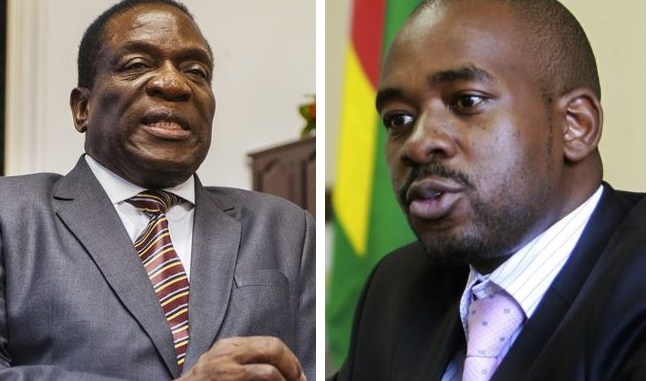
When President Emmerson Mnangagwa brought the Political Actors Dialogue (Polad) as a framework for political parties to mould the country’s vision, he had mapped his route to vindication.
While he regards himself as a “listening president” who is “as soft as wool”, his historical record which cannot be easily cleansed and erased project him as a wily and manipulative politician. His wartime qualities have made him survive thus far.
As a career politician, previously each time President Mnangagwa’s opponents thought he had outlived his usefulness in Zanu PF’s factional intricacies, as the “crocodile”, he snapped back, no matter how much time it took him. His life is a tale of survival. The story continues to unfold today. By setting up Polad, President Mnangagwa knows that an opposition that acknowledges him would have the benefit of boosting confidence for international lenders especially with long-term debts. However, his main political opponent, MDC-Alliance’s Nelson Chamisa declined taking part in Polad armed with a list of demands. For everything that is going to be right in reforming Zimbabwe with or without Chamisa in Polad, the Transitional Stabilisation Programme (TSP) is the blueprint.
However difficult it is, today the economy is speaking in tongues under his watch. The economy is a reflection of Zanu PF’s policies and their ineffectiveness to govern through consensus, inclusivity, compromise and diversity. Odious debts that benefited Zanu PF and its patronage system and not the country haunt President Mnangagwa today and his administration more than talk of “legitimacy”.
Domestically, no one has interest in buying Treasury bonds because there is no confidence lending to government due to incessant droughts and a low productive capacity. Despite many indications that the economy is sick, all pointers make Zimbabweans hopeful each time they hear media reports that dialogue between President Mnangagwa and Chamisa “is now at an advanced stage” and being pushed by South Africa’s Cyril Ramaphosa and church leaders.
It is Zimbabweans who continue eating pain during their meal times when “talks” do not occur. Pronouncements by Sadc’s Executive Secretary Stergomena Lawrence-Tax highlighting that Zimbabwean solutions will be formulated by its citizens makes the “imminent” dialogue between the two protagonists a painkiller unto Zimbabweans.
Prior the MDC-Alliance’s challenge of Mnangagwa’s 2018 Presidential election victory in the Constitutional court, the latter wore the face of a democrat and did not object to the challenge of his victory.
The transition into the Second Republic did not change how the system operated by Zanu Pf for nearly four decades has been. Power retention is an area of expertise for Zanu PF.
- Chamisa under fire over US$120K donation
- Mavhunga puts DeMbare into Chibuku quarterfinals
- Pension funds bet on Cabora Bassa oilfields
- Councils defy govt fire tender directive
Keep Reading
To expect a changed Zanu PF today would be a betrayal of the party’s founding ethos premised on ”straitjacketism”, determined and uncompromised resolve in addressing issues their way.
It is Zanu PF that fought against Britain, the European Union and their western allies and won, either ideologically or militarily. Locally, it is Zanu PF that cowed the opposition into subservience in the 2008 election aftermath, culminating in their regeneration and the 2013 victory. Those behind all these victory displays include President Mnangagwa, and to those who connect the dots based on principle, no dialogue is set to happen anytime between the two leaders outside Polad.
Besides the excitement of youthfulness by the MDC-Alliance to delay Mnangagwa’s inauguration in August last year by seeking refuge at the court, party leaders were naïve to approach the court expecting a different outcome. The party-State institutional link in Zimbabwe is complex and on many occasions Zanu PF has enjoyed the preponderance of incumbency.
The only platform that has been put in place so far for dialogue is Polad, which is expected to run until the next election. The MDC-Alliance’s effort to portray the illegitimacy of the Mnangagwa administration leaves them guilty by association through accepting diplomatic passports and participating in parliamentary debates on Bills that are approved by someone “illegitimate”.
Yes, President Mnangagwa and Chamisa are going to dialogue, unfortunately, not now. From what is on the ground, the ruling party is in no hurry for any dialogue outside Polad and Chamisa’s alliance could now be hardly pressed as they might not have anticipated being at this stage without meaningful engagement.
That being said, when Zanu PF is relaxed, be assured that they have already devised a 2023 game plan, probably waiting for 2028 and without Zanu PF’s attention, the MDC-Alliance will soon turn on each other’s throat. It is easy to criticise Bryan Taurai Mteki, a Polad member, when he rejoins Zanu PF, and it is important to read the lines when Zanu PF says by 2023 it is working to get five million votes, nearly double the number Chamisa claims voted for him.
President Mnangagwa is a single-minded idealist or pragmatist, that is why he believes in the TSP and its architect, Finance minister Mthuli Ncube, despite many economic ills facing the people. For him to dump the TSP is awful, as much as he cannot discard Polad.
If Zimbabwe’s fortunes turn north, for credit’s sake, it will be under President Mnangagwa and Zanu PF’s watch alone, and if the economy collapses, it will be under everyone’s watch.
However clueless Zanu PF might be labelled, power is a game they understand, whether political, bureaucratic or military. To them, political power is the ability to determine and shape outcomes, to which they have invested.
Gibson Nyikadzino is a media and development analyst. He writes In his personal capacity.











